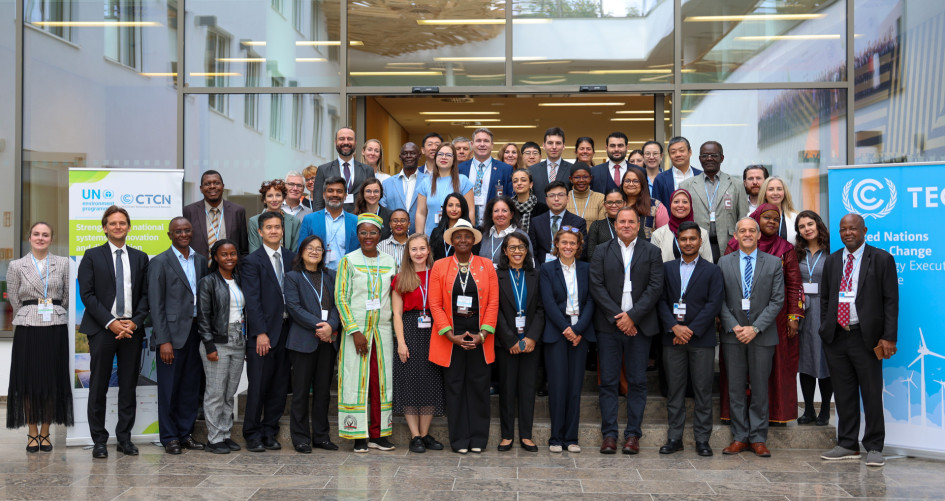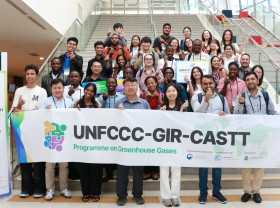UN Climate Change News, 7 October 2025 – The UNFCCC Technology Executive Committee (TEC) concluded its 31st meeting (TEC 31) with a strong push to scale up climate technology innovation, accelerate technology transfer, and strengthen support for developing countries. The gathering marked a key milestone in the implementation of the TEC’s 2023–2027 rolling workplan, as members and partners reviewed progress, launched new knowledge products, and mapped priorities for the years ahead.
New knowledge products
TEC 31 showcased several new and updated tools designed to advance climate technology action:
- A technical paper on artificial intelligence (AI) for climate action in developing countries, developed with the United Nations Industrial Development Organization (UNIDO).
- A Technology Needs Assessment (TNA) guidebook on renewable energy and just transition, developed with UNIDO and the UNEP Copenhagen Climate Centre (UNEP-CCC).
- A knowledge product on supporting developing countries in conducting and updating TNAs.
- A policy brief on climate technologies for buildings and infrastructure, developed with partners including the Global Alliance for Buildings and Construction (GlobalABC) and the Massachusetts Institute of Technology (MIT) Climate Policy Centre.
These outputs aim to enable access to emerging technologies and promote low-carbon pathways across sectors such as energy, buildings, and industry.
Focus on emerging technologies
TEC 31 explored countries’ emerging technology needs and priorities. Case studies highlighted innovations such as mobile-based climate observations in Malawi – part of the AI for Climate Action Initiative – showing the potential of digital solutions to boost local resilience.
Members also identified priority challenges, including energy storage, early warning systems for displaced populations, and low-carbon standards for industries like cement and steel.
New initiatives were launched to:
- Develop a policy brief on opportunities, risks and challenges of AI for climate action, in collaboration with the Korea International Cooperation Agency (KOICA) and UNIDO.
- Prepare a knowledge product on incubators and accelerators for climate technologies, in collaboration with UNIDO.
- Finalize an analysis of standards and labels for low- and near-zero-emission production and products in hard-to-abate industries, in collaboration with UNIDO.
- Advance community-based early warning systems for displaced and mobile populations, integrating indigenous knowledge and innovative financing, in collaboration with the International Organization for Migration (IOM).
- Develop a guidebook on climate-smart agriculture and food systems, in collaboration with the Food and Agriculture Organization of the United Nations (FAO).
- Refine and pilot the National Systems of Innovation (NSI) Mapping tool in six countries.
Expanding collaboration
Members held discussions with potential partners, including the European Commission and the International Telecommunication Union. Proposals for collaboration ranged from financial and technical support for the workplan to joint initiatives on innovation benchmarks and green digital transformation, to leveraging ICT standards for climate action. Participants also emphasized the importance of integrating indigenous knowledge and inclusive approaches into technology solutions.
Strengthening the Technology Mechanism
In a joint session with the UN Climate Technology Centre and Network (CTCN), members reviewed progress on shared initiatives, including the AI for Climate Action Award and the development of an AI Climate Application Hub in collaboration with the Digital Public Goods Alliance. Regional forums for National Designated Entities (NDEs) were also reviewed and highlighted as vital platforms for peer learning and stronger institutional support.
Looking ahead
- Preparing for COP30 in Brazil: The TEC began planning for COP30 in Belém, Brazil. Members discussed contributions to thematic spaces on digital technologies, innovation, and entrepreneurship, as well as a dedicated Technology Day, which will spotlight decarbonization pathways in the chemical and petrochemical sectors.
- Next steps: Building on the outcomes of TEC 31, the Committee will continue refining its knowledge products, deepening engagement with NDEs, and strengthening partnerships across and beyond the UNFCCC process.




